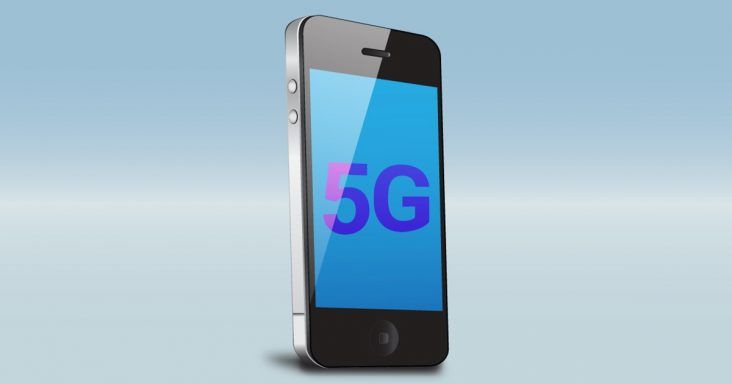5G to arrive in Arkansas by 2021; Fayetteville to expand broadband access
by March 25, 2019 3:29 pm 5,879 views

Mobile phone service 5G is the next generation of cellular technology after 4G LTE, and cellular service providers are expected to offer nationwide 5G service by 2020 or 2021.
Sean Kinney, the managing partner of content for Arden Media and editor in chief of RCR Wireless News, said providers are continuing to release the service in U.S. cities this year, and it should be offered in the next couple of years in areas of Arkansas where existing cellular service is available.
Kinney was one of two speakers Thursday (March 21) at a meeting in Fayetteville as part of a project to expand broadband access for residents and businesses in the city. Mayor Lioneld Jordan has established a task force to determine how to improve access, and the task force is expected to present a plan in May to the Fayetteville City Council. The goal is for the plan to be approved as part of the mayor’s master plan, said Michelle Gibeault, chairwoman of the Digital Inclusion Task Force.
Gibeault, who is a teaching librarian at the University of Arkansas, spoke about the history of net neutrality policies and took questions regarding the potential outcome of bills and lawsuits challenging the 2017 repeal of net neutrality. The net neutrality rules, or the Open Internet Order, approved in 2015 required internet service providers to treat all online traffic as equal, restricting the slowing or increasing of internet speeds for specific websites. Whether the United States will have open internet remains uncertain, said Gibeault, adding that a recent poll shows 82% of respondents support net neutrality.
While 5G service is expected to be offered nationwide over the next two years, 4G LTE, which launched in 2010, is not going away, Kinney said. The existing 4G LTE service continues to be upgraded and is expected to fill in the gaps in areas where 5G won’t be available. After approving an ordinance in November 2017 to allow for the installation of 5G infrastructure, the city of Fayetteville has provided permits to cellular service providers and their contractors to upgrade existing 4G LTE service where gaps in coverage remain, and the small cellular towers that have been installed to patch the coverage holes are expected to be upgraded, eventually allowing for 5G service, said Susan Norton, communications director for Fayetteville.
The new service is expected to create value where it didn’t exist before, Kinney said. He cited Qualcomm data that by 2035, 5G will enable the creation of $12.3 trillion worth of goods and services, create 22 million jobs and add $3 trillion to the gross domestic product globally — the equivalent of adding an economy the size of India to the world.
The speed of 5G service is projected to be 100 times faster than existing 4G LTE service. Kinney explained the initial speeds of 5G won’t be that fast but will eventually rise to that level. The service will have speeds of more than 1 gigabits per second and latency of fewer than 10 milliseconds. Latency refers to the lag time before data is transmitted, and Kinney said reduced latency could be the difference between an autonomous vehicle changing lanes or hitting a light pole. When compared to existing service, 5G will allow people to stream 4K video as they do now with music using 4G LTE, Kinney said.
After the meeting, Kinney explained the 5G network is expected to be offered by some providers at $10 more per month than the cost of some existing unlimited service plans. Because the service operates at different frequencies than existing services, he said small, shorter-range cellular towers will need to be placed at varying levels, such as on rooftops, streetlights and utility poles. But the traditional cellular towers will still be required to provide the service over a wider range. The small, shorter-range towers will provide higher speeds. Some of the short-range towers have already been installed and are filling the gaps in coverage for 4G LTE, such as in high traffic areas of cities.
When asked about health concerns regarding exposure to new cellular signals, Kinney said people have been exposed to cellular signals for the past 30 years without adverse effects.
The city is asking residents to complete a survey on the project to increase broadband access for residents. Link here for the survey.
